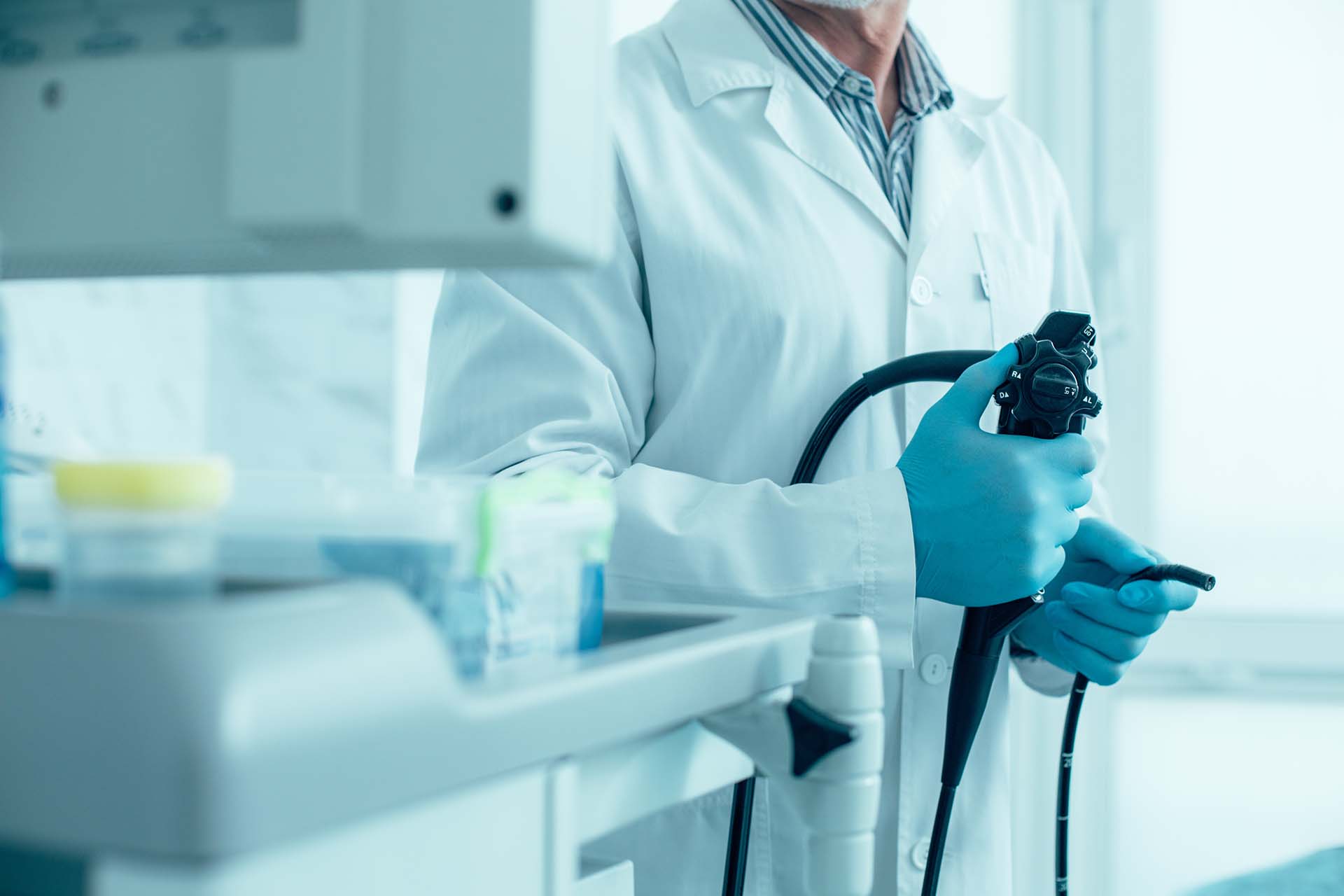
Colonoscopy
Information and Resources for Colonoscopy Patients
About Colonoscopy
Colonoscopy is a common, minimally invasive procedure that allows a physician to examine the large intestine for polyps, cancer, inflammation, and other conditions with a small camera. The procedure takes about 20 to 60 minutes, with the entire outpatient visit typically lasting about 1.5 to 2 hours at Green Mountain Surgery Center, and about 3 hours at the University of Vermont Medical Center.
Since most colon cancers start out as polyps, a colonoscopy is an effective way to prevent cancer. It is recommended to complete this important preventative screening when referred by your PCP—depending on your medical & family history.
For a colonoscopy to be effective, the lining of the colon must be completely emptied prior to the procedure. Please follow the prep instructions you are provided exactly as recommended. Most prep methods require that you begin 2 days before the procedure, and the prep medication is split into 3 doses. The day before the procedure, you may only consume liquids and no solid foods. Also remember: NO nuts, seeds, or popcorn 5 days prior to the procedure.
IMPORTANT REMINDER:
Your procedure will take place at the GREEN MOUNTAIN SURGERY CENTER in Colchester.
*** We do not perform procedures at our office. ***
If you are on insulin or other medications for diabetes and/or pain medications, please CHECK with your REGULAR physician for specific instructions. In almost all cases, you MUST let us know if you take blood thinners or GLP-1 drugs (Such as: Ozempic, Victoza, Trulicity, Mounjaro, Rybelsus), as these must be held before you have your procedure.
Colonoscopy Procedure Steps
Before
During your pre-op, you will have an IV placed and your health history reviewed. The doctor will then come into the room and ask for your consent. Before the procedure begins, you will be administered sedation medicine through your IV, allowing you to be comfortable and asleep during your procedure.
During
The colonoscope, a long flexible tube with a tiny video camera at the tip, is inserted into the rectum and directed through the large intestine. During the procedure, the physician is able to view the entire length of the large intestine. If any polyps (abnormal growths) are discovered, the doctor will usually remove them at the time of colonoscopy. Patients do not feel gastrointestinal biopsies or the removal of polyps. Conditions such as Crohn’s disease, ulcerative colitis, colon cancer, and diverticulosis can usually be diagnosed at this time.
After
After a colonoscopy, patients rest for an average of 30 minutes in the recovery area. They will need a ride home and can resume regular activities the following day.
Prep Instructions
When your procedure was scheduled, you were told which prep method you would use. Please download and review the relevant instructions document below – it contains important information about your upcoming procedure.
Suflave
Miralax
Suprep
Nulytely
Clenpiq
For more information, visit our Procedure Prep Instructions page.
Colonoscopy Tips
- Before you start the prep, use Vaseline or hemorrhoid cream to protect the skin on your bottom.
- Use baby wipes or hemorrhoid wipes to decrease irritation.
- Try drinking the laxative through a straw or suck on a popsicle before and after drinking the laxative.
- Drink at least 8 ounces of clear liquids every hour while awake.
- The laxative prep will cause multiple bowel movements and often works within 30 minutes, but may not start working for more than 3 hours. You will need to be close to a bathroom.
- After a colonoscopy, you might have some cramping due to air in your stomach or colon. Don’t be bashful about passing air; you will feel better if you do so.
- It is normal not to have a bowel movement for a day or two after a colonoscopy. But if you experience severe abdominal pain or a temperature above 101 degrees, please call your doctor immediately.
- If you had biopsies taken or a polyp removed, you may pass a small amount of blood from your rectum. Notify your doctor immediately if you start to pass large amounts of blood (more than ½ cup) or if blood passes continually.
Still have questions?
Understandably, you may have questions about scheduling, your upcoming appointment, payment, and other topics related to our practice. Visit our “Frequently Asked Questions” page for answers to commonly asked questions.